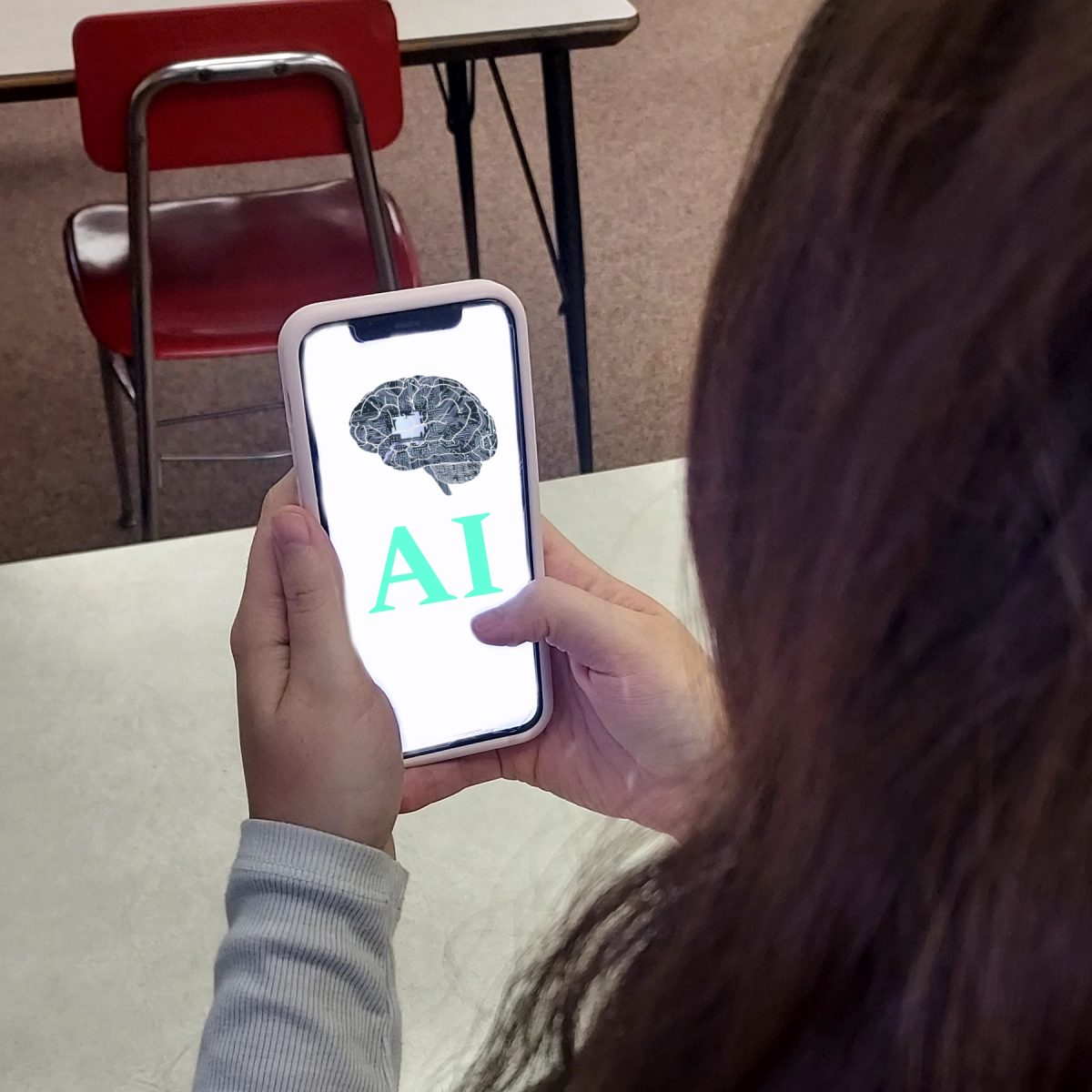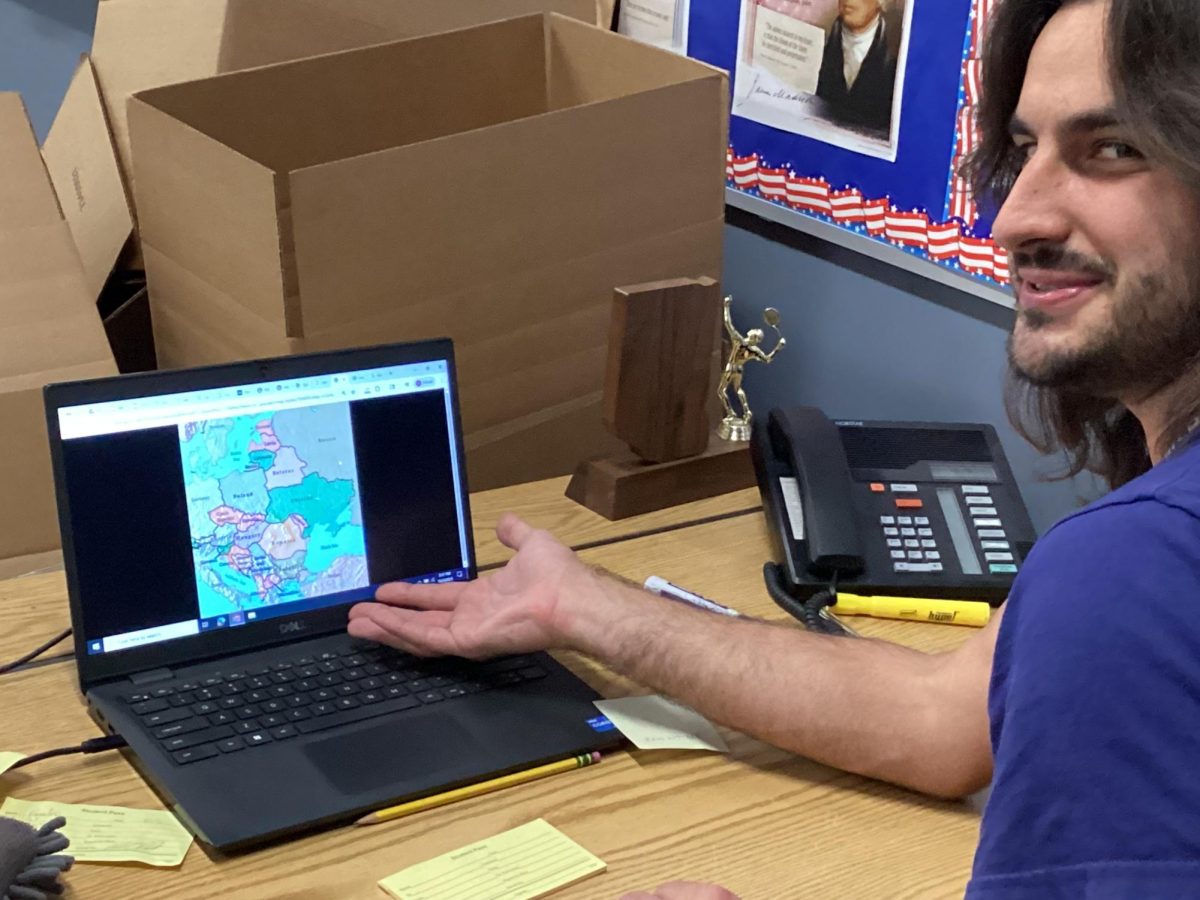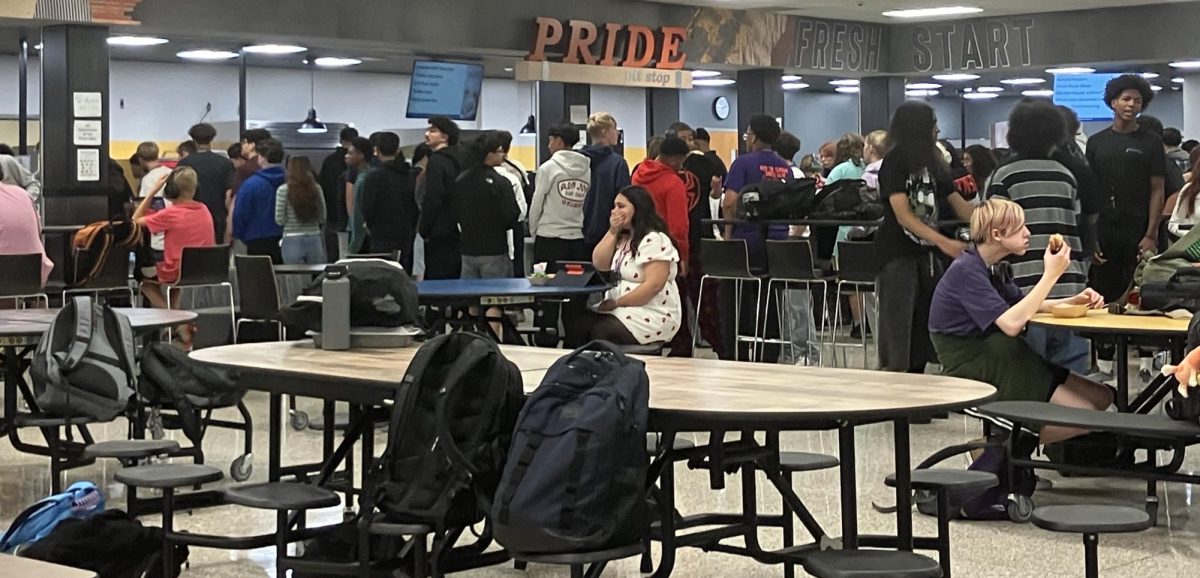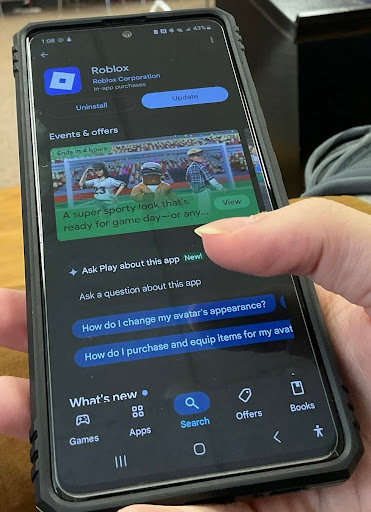Artificial Intelligence, more commonly known as “AI,” has been making its presence more and more known to the public in the past few years. This sudden rise in such an advanced technology, however, has some people worried: Will society end up as something from a futuristic movie soon, perhaps like Wall-E? Or, will this technology help the human race into becoming more advanced itself?
Narrowing this wide perspective down, one may look at how AI is affecting the American schooling system. Mrs. Brittany Townsley, an English teacher at Elkhart High School, comments on her thoughts on seeing the use of AI begin to skyrocket–in and out of the classroom. “It is scary.” She states plainly. “I can see many students using AI to get out of completing work themselves. It is so much easier to let AI do the hard work for you instead of putting in the effort yourself. When students feel stressed or overwhelmed with school, AI is now there to relieve some of the load.” Luckily, teachers now have the ability to check if a student’s writing is AI or not with the help of various different websites. Still, it may be hard to even suspect a paper to be AI, and it adds another layer of hassle to check every single student’s writing, so much of these AI generated things go completely unnoticed.
Students, however, have a different view on how AI is impacting their education world. “AI can help people come up with new ideas and get a better outline of what they want to write,” Olivia Lopez, a senior at Elkhart, comments. Despite her praise, she does acknowledge her concerns with not the AI itself, but rather the people using it. Both Interviewees bring up these similar concerns of how people use Artificial Intelligence, and how it may be a concern for future education.
Most of this concern around AI always revolves around how people use this advanced technology. Humans seem to have the immediate reaction to “work smarter not harder,” and not put thought and emotion into tasks, such as essays–as they often take hours or days to complete a final draft on some occasions. But, when someone takes his time to think on an essay and use his own personal experiences to try and connect with others, it makes a world of difference–and could even leave a genuine, emotional impact on the reader. This is so much more than technology could ever do.
This “new mind,” as Lopez puts it, is often placed in such a great light by the media, but in reality it is encouraging people to stop trying–to stop building connections through writing. Taking time to really think and put effort and emotion into writing is so meaningful–not for just teachers, but for so much else. This generation has the ability to amaze the world with its stories–so why waste time with AI?




















